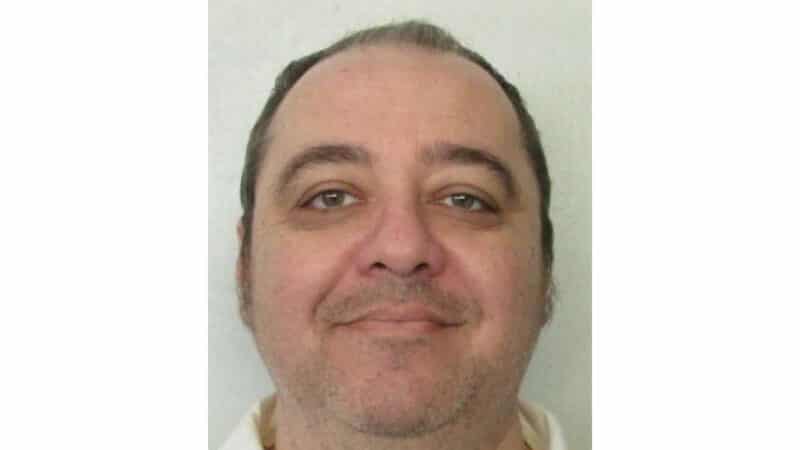Judge dismisses lawsuit over upcoming lethal injection in Alabama
MONTGOMERY, Ala — A federal judge dismissed an inmate’s claim seeking to block his upcoming execution in Alabama because of reported problems at a recent lethal injection.
The judge on Sunday granted Alabama’s request to dismiss the lawsuit brought by Kenneth Eugene Smith, agreeing that Smith waited too long to file the challenge. But U.S. District Judge R. Austin Huffaker Jr. also warned Alabama’s prison commissioner to strictly follow established protocol when officials attempt to put Smith to death next month.
“Sanctions will be swift and serious if counsel and the Commissioner do not honor or abide by their representations and stipulations,” Huffaker wrote.
Smith is set to be executed by lethal injection Nov. 17 after being convicted in the murder-for-hire killing of Elizabeth Dorlene Sennett, 45.
Smith’s attorneys pointed to a July execution, which an anti-death penalty group claims was botched, to argue that Alabama’s lethal injection process creates a risk of cruel and unusual punishment.
The July 28 execution of Joe Nathan James Jr. was carried out more than three hours after the U.S. Supreme Court denied a request for a stay. State officials later acknowledged the execution was delayed because of difficulties in establishing an intravenous line, but did not specify how long it took.
A doctor who witnessed a private autopsy paid for by an anti-death penalty group said it appeared officials might have attempted to perform a “cutdown,” a procedure in which the skin is opened to allow a visual search for a vein.
Huffaker noted that Corrections Commissioner John Hamm “represents in his brief and during oral argument that the ADOC did not employ a cutdown procedure or intramuscular sedation during the James execution and denies any present intent to employ any such procedure in the future.”
Huffaker ruled that Smith missed the time frame to challenge Alabama’s lethal injection process.
Smith missed the 2018 deadline to request execution by nitrogen hypoxia, an execution method that Alabama has authorized but not developed a process to use. Smith’s attorneys argued that the state violated his due process rights by not providing him information necessary to make a knowing and voluntary waiver of his nitrogen hypoxia election right in 2018.
His attorneys argue that Smith did not know nitrogen hypoxia “would not be implemented for years, if ever.” Huffaker said that complaint also could not overcome a “clear statute-of-limitations hurdle.”
Prosecutors said Smith was one of two men paid $1,000 to kill Sennett on behalf of her husband, the Rev. Charles Sennett, who was deeply in debt and wanted to collect on insurance. Smith maintained it was the other man who killed Sennett, according to court documents.
Smith was initially convicted in 1989, and a jury voted 10-2 to recommend a death sentence, which a judge imposed. His conviction was overturned on appeal in 1992.
He was retried and convicted again in 1996. This time, the jury recommended a life sentence by a vote of 11-1, but a judge overrode the jury’s recommendation and sentenced Smith to death. Alabama no longer allows a judge to override a jury’s recommendation.
Birmingham is 3rd worst in the Southeast for ozone pollution, new report says
The American Lung Association's "State of the Air" report shows some metro areas in the Gulf States continue to have poor air quality.
Why haven’t Kansas and Alabama — among other holdouts — expanded access to Medicaid?
Only 10 states have not joined the federal program that expands Medicaid to people who are still in the "coverage gap" for health care
Once praised, settlement to help sickened BP oil spill workers leaves most with nearly nothing
Thousands of ordinary people who helped clean up after the 2010 BP oil spill in the Gulf of Mexico say they got sick. A court settlement was supposed to help compensate them, but it hasn’t turned out as expected.
Q&A: How harm reduction can help mitigate the opioid crisis
Maia Szalavitz discusses harm reduction's effectiveness against drug addiction, how punitive policies can hurt people who need pain medication and more.
The Gulf States Newsroom is hiring a Community Engagement Producer
The Gulf States Newsroom is seeking a curious, creative and collaborative professional to work with our regional team to build up engaged journalism efforts.
Gambling bills face uncertain future in the Alabama legislature
This year looked to be different for lottery and gambling legislation, which has fallen short for years in the Alabama legislature. But this week, with only a handful of meeting days left, competing House and Senate proposals were sent to a conference committee to work out differences.








